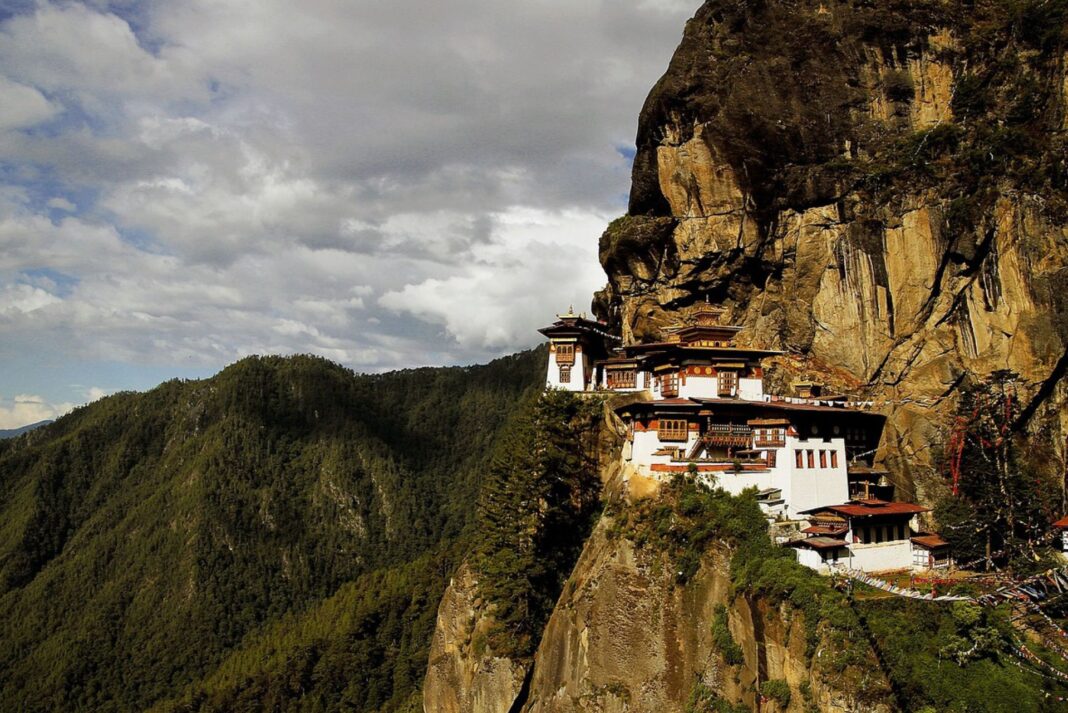BTN News: In an age where rapid technological advancements shape daily life and cities grow more interconnected, it’s hard to imagine a nation without traffic lights. Yet, nestled in the heart of the Himalayas, Bhutan, a small, tradition-rich country, remains an exception. Despite the global standard of using traffic signals to regulate roadways, Bhutan has chosen to preserve its culture by keeping its streets free from traffic lights. This choice, driven by a desire to safeguard its heritage, reflects the country’s broader philosophy of balancing progress with tradition.
A Unique Nation Without Traffic Lights
Bhutan, with its population of around 800,000, stands out as the only nation in the world where traffic lights are absent. Instead of relying on automated signals to manage traffic, the country opts for a more human-centered approach. In major intersections, traffic police officers direct vehicles and pedestrians from small booths, ensuring smooth traffic flow.
Although the traffic volume in Bhutan’s capital, Thimphu, may not compare to bustling metropolises, it’s still significant enough to make the absence of traffic lights surprising to visitors. Many might expect chaotic road conditions, but thanks to Bhutan’s calm driving culture and the work of its traffic police, accidents remain minimal. The lack of traffic lights is not due to a low volume of vehicles but rather a conscious decision by the royal family to maintain tradition.
The Royal Family’s Influence on Modernization
The royal family plays a pivotal role in shaping Bhutan’s unique policies. Revered by the Bhutanese people, the monarchy has long been a symbol of national pride and cultural preservation. Their stance against installing traffic lights is part of a broader effort to retain Bhutan’s distinct identity in the face of growing globalization.
King Jigme Singye Wangchuck, Bhutan’s beloved Fourth Dragon King, exemplified this balance between tradition and modernity. In 1999, he made the groundbreaking decision to introduce television and the internet to Bhutan. Before that, the country had remained isolated from such technologies, viewing them as potential threats to its culture. Today, while these modern conveniences have been embraced, Bhutan remains selective about how and when to integrate technology into its daily life.
Balancing Tradition and Modernity
The absence of traffic lights isn’t the only instance of Bhutan maintaining its traditional ways in a modern world. The country is also known for its careful management of tourism. Bhutan limits the number of tourists allowed to visit annually, ensuring that its culture, environment, and social fabric aren’t overwhelmed by foreign influence.
Tourists must travel with a licensed guide at all times and are required to pay a daily fee as part of the government’s “high-value, low-impact” tourism strategy. This ensures that the country retains control over its own development, limiting excessive foreign interference.
While automated teller machines (ATMs) and other modern services have made their way into Bhutan to accommodate visitors, the country remains highly protective of its traditions. This careful balance between tradition and modernization is key to Bhutan’s unique identity, including its decision to forgo traffic lights in favor of human direction.
Will Bhutan Ever Install Traffic Lights?
Despite the rest of the world’s dependence on traffic lights, Bhutan has shown no signs of reconsidering its stance. The absence of traffic signals is a point of pride for the Bhutanese, and there is currently no plan to introduce them. The traffic police system, rooted in personal interaction, is seen as an extension of Bhutan’s commitment to valuing human connection over automation.
The Intersection of Tourism and Tradition
For visitors, the traffic light-free streets of Bhutan serve as a metaphor for the country’s broader ethos. The country is focused not on rapid modernization but on preserving its cultural heritage. Bhutan’s approach to tourism reflects this, with the government setting a cap of 150,000 tourists annually. Each visitor is required to travel with a guide, ensuring that the country’s natural beauty and ancient traditions remain undisturbed.
Although modern technologies have slowly trickled into Bhutan, it is clear that any further developments will be introduced with care, always keeping the preservation of Bhutan’s rich history and Gross National Happiness in mind.
Conclusion: A Nation at Peace with Its Pace
Bhutan’s decision to avoid traffic lights is emblematic of its broader philosophy: modernization can be embraced, but not at the expense of cultural identity. For the Bhutanese, tradition is not a relic of the past but a living, breathing aspect of their national consciousness. In a world that moves faster every day, Bhutan’s steady pace and commitment to its values offer a unique perspective. As tourists marvel at the lack of traffic lights, they also witness a nation standing firm in its dedication to maintaining harmony between past and present.


